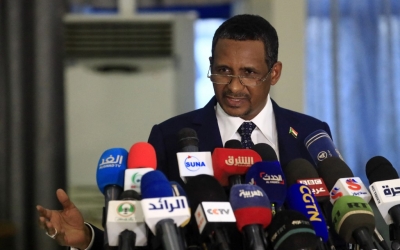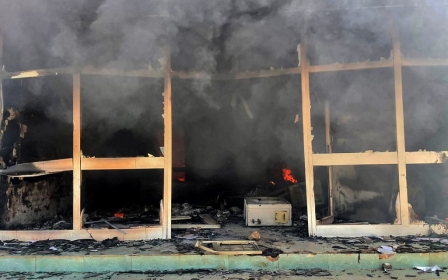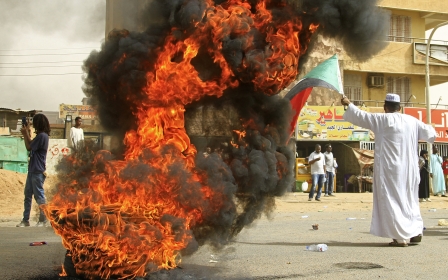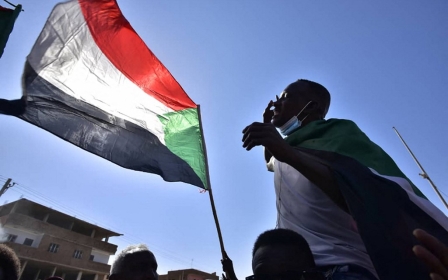Sudan: Coup leader says country became worse after takeover
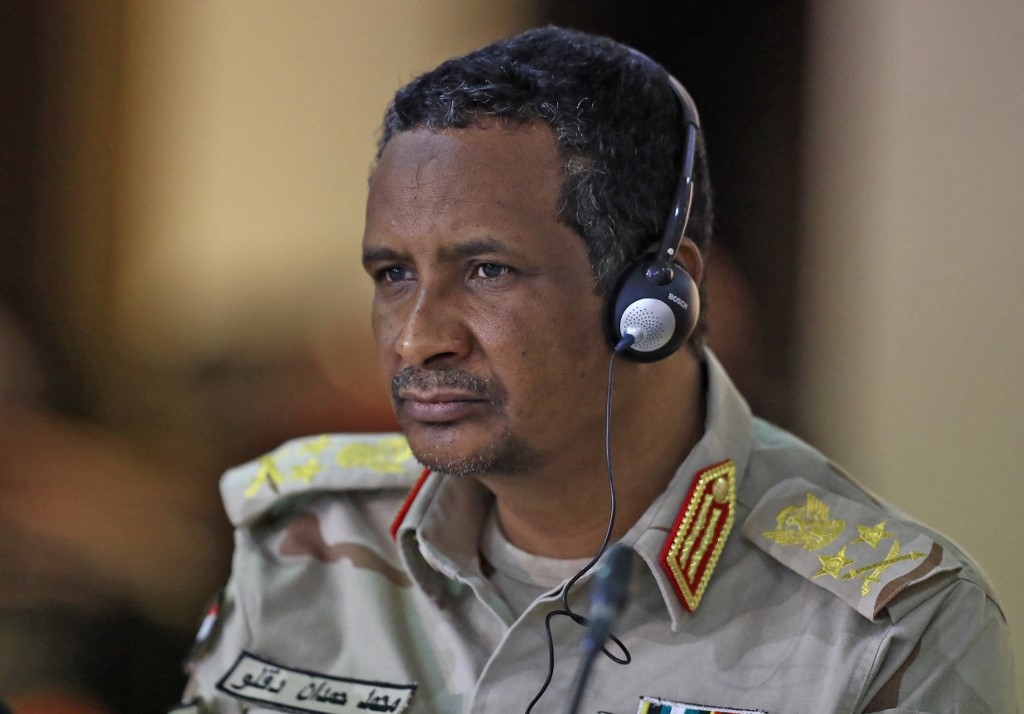
The deputy head of Sudan's ruling council, General Mohamed Hamdan Daglo, said on Monday that the military coup last year has failed.
Daglo, second in command to General Abdel Fattah al-Burhan, who led the October coup, admitted they "unfortunately did not succeed in bringing about change," in an interview with BBC Arabic.
"When you think about change, it often comes with goals and a vision for change. But unfortunately what we planned for was not achieved and it failed," the commander of the paramilitary Rapid Support Forces said.
"And now we are headed for the worst."
In October last year, Burhan led a military coup against the country's transitional civilian government, which sparked international condemnation and local unrest. Near-weekly anti-coup protests have been held across Sudan, and protesters have been met with violent crackdowns, which have killed at least 114 people since October.
New MEE newsletter: Jerusalem Dispatch
Sign up to get the latest insights and analysis on Israel-Palestine, alongside Turkey Unpacked and other MEE newsletters
Last month, Burhan announced the withdrawal of the army from ongoing political talks, to allow the formation of a civilian transitional government.
However, opposition groups and protesters were sceptical about his intentions, suggesting that it might be an attempt to create a pro-military civilian government.
Daglo, known as Hemeti, reaffirmed Burhan's announcement in which he said the military was serious in its intention of exiting the political scene. He also said he had no political ambitions.
"We will not run for elections, but if we see Sudan collapsing, we will be present, and we are part of the Sudanese people, and what applies to others applies to us," he told the BBC.
"I have no political ambition, but reality forced me to be present, and this is a fact I must say. And if people come and fill this void, and they are up to the responsibility, we will certainly help them so that our country does not collapse."
Hemeti was once the head of the notorious Janjaweed militias, the "devils on horseback," accused - along with the Sudanese Armed Forces - of genocide and widespread atrocities in Darfur in the early 2000s.
A former warlord from a Chadian Arab clan, Hemeti is now one of the most powerful and feared men in Sudan. His forces have been out on the streets of Khartoum and other major cities suppressing mass protests since the 2019 uprising that led to the removal of longtime ruler Omar Hassan al-Bashir.
Middle East Eye delivers independent and unrivalled coverage and analysis of the Middle East, North Africa and beyond. To learn more about republishing this content and the associated fees, please fill out this form. More about MEE can be found here.


